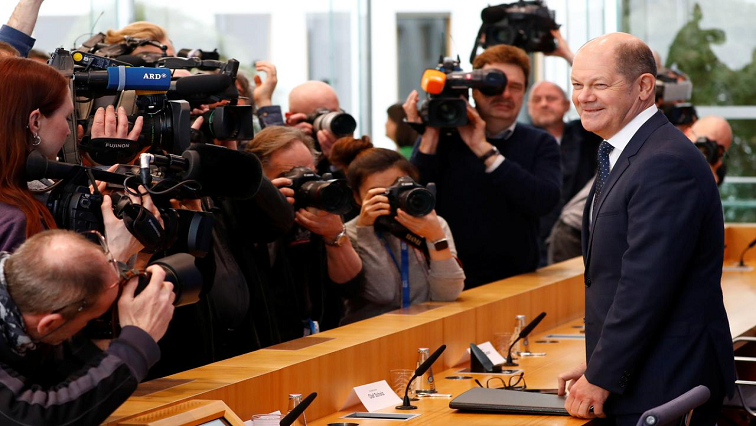The German cabinet on Wednesday passed a draft budget for 2020 that calls for a 1.7% pending increase and relies on ministries to cut costs to avoid incurring new debt in light of an economic slowdown in Europe’s largest economy.
Finance Minister Olaf Scholz’s fiscal room for manoeuvre is getting tighter because tax revenues are likely to come in lower than expected in 2019 as exporters are hit by weaker foreign demand, trade disputes and Brexit uncertainty.
“We cannot find funding for everything we want, but we can finance a lot,” Scholz told reporters in Berlin, adding that his plan envisaged increased investments of nearly 40 billion euros in 2020 in areas such as infrastructure, education and housing.
With solid public finances and a vibrant domestic economy, Germany will be well-placed to withstand a weakening world economy, rising trade barriers and the risk of a no-deal Brexit, Scholz said.
Chancellor Angela Merkel’s cabinet earlier on Wednesday approved Scholz’s draft budget plan for 2020 and financial planning until 2023.
The German economy has been enjoying an unusually prolonged upswing since 2010 and the federal government has managed to increase spending without incurring new debt since 2014.
“Reliability also means to pledge that we won’t take on new debt in economic good times,” Scholz said. Scholz said he had not made any provisions for costs related to a possible merger of Deutsche Bank and Commerzbank in his budget plans.
The German government would keep itself informed about the merger talks, but any decision would need to be taken by the banks themselves, Scholz said, reiterating that Germany needed a strong banking sector.
The government holds a Commerzbank stake of more than 15% following a bailout during the financial crisis. Scholz and his deputy, Joerg Kukies, are widely seen as having pushed for a merger.
The draft budget foresees spending of 362.6 billion euros ($411.80 billion), but sources have said ministries will have to identify total spending cuts of 625 million euros each year, with programme delays and other measures to contribute additional savings.
Military spending is slated to rise further to 45.1 billion euros in 2020, but the mid-term financial planning does not provide enough money to reach the NATO target of spending 2% of economic output on defence in the coming years.
The increase means that the share of German defence spending will rise to 1.37% of gross domestic product in 2020 from 1.25% in 2018 and 1.3% in 2019.
Defence Minister Ursula von der Leyen told reporters that military spending was rising at more than twice the rate of the overall budget, a signal that Germany remained committed to the NATO spending target.
However, she said the failure to budget bigger increases in coming years meant the ministry would have to fight again in 2020 to ensure that defence spending continue to expand as a share of the overall economy to move toward the NATO target.
US Ambassador Richard Grenell this week took aim at the German government for failing to boost spending faster to meet the NATO target by 2024. Von der Leyen noted that German military spending had increased by 40% since a NATO summit in Wales in 2014.






